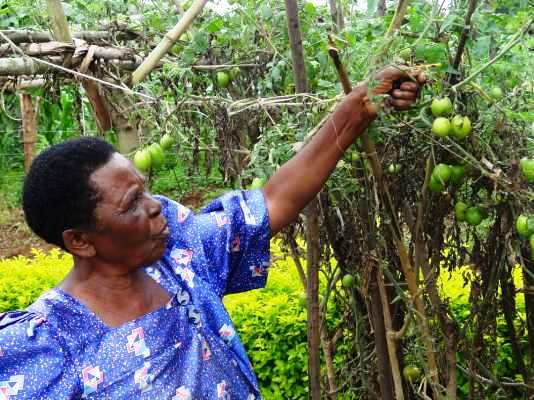Officials from Uganda Revenue Authority appearing before the House Committee on Agriculture on Thursday 30 November 2023
Uganda Revenue Authority (URA) has reported a significant increase in tax revenue from fish maw exports since the introduction of an eight percent export levy under the Fish (Amendment) Act 2021.
Officials from the Uganda Revenue Authority told the Committee on Agriculture, Animal Industry and Fisheries that government was now earning annual revenue worth Shs 9.136 billion, as compared to Shs 521 million earned in the financial year 2022/2023.
“This is attributed to an eight percent export tax on the total value of fish maw, which is exported out of Uganda,” said Abel Kagumire, Commissioner of Customs at URA.
The meeting was held on Thursday 30 November 2023.
Kagumire, who represented the URA Commissioner General, was responding to concerns of the Fish Maw and Traders Association entailed in their petition to Parliament.
The Association, in October 2023 petitioned the Speaker over a plethora of taxes and the high-handedness of law enforcers during tax collection.
Kagumire said the eight percent tax that fish maw traders contest is justifiable and necessary since the trade has proved lucrative.
“From the Economic Policy and Research Centre study in 2021, it was established that the Nile Perch fish maw weighing a kilogram can sell as much as US$1000, approximately Shs3.7 million internationally and locally. Therefore, the tax levy of eight percent is justified,” said Kagumire.
He, however, left MPs concerned when he said the export levy had discouraged investment into the fish maw export, as seen in the declined export volumes.
This according to MPs calls for a review of the economic impact on the entire fish maw trade despite the hike in revenue.
“Although you are collecting more revenue, you have narrowed the tax base, we are seeing an increase in export volumes in Kenya and Tanzania where the tax regime is favorable. Ugandan fish maw is most likely being smuggled into the neighboring countries,” said Hon. Robert Migadde (NRM, Buvuma Islands County).
Migadde criticized URA’s motive for basing the eight percent export levy on the international market, saying the computation should have been based on the local realities.
“I spent a week in China looking for a market for fish maw, and I was told you can only find small items in supermarkets, so fish maw is mostly smuggled into China and Hongkong. When you base the levy on international standards, you are basing on smuggled rates,” Migadde said.
Kagimire reiterated that the fishing industry in Uganda is not as organized for one to establish a clear basis for generating tax as it is a practice with other industries organized into unions and associations.
On the request by fish maw traders to be exempted from the six percent withholding tax, Kagumire said the law applies to traders that are tax compliant, which he said is rare with fish maw business.
He explained that Section 119 of the Income Tax Act, 2023 provides that tax-compliant taxpayers are eligible to apply for exemption from withholding tax or ask for a refund.
He said that URA was dealing with several cases of fish maw smugglers.
MPs observed a need to review the implementation of the various tax regimes and their impact on the fishing industry.
This is a matter of policy that Parliament should take on. For example, whereas fishing is under the Ministry of Agriculture, fish is not treated as other agricultural products under taxation,” said Hon. Julius Tusiime (Ind. Rwampara East County).
Bbale County representative Charles Tebandeke asked URA to take an interest in the fish maw trade in other East African Community states where he said it was booming.
“You might find that part of the factors boosting the fish maw trade in Kenya and Tanzania is the favorable tax regime. Have you carried out research to understand the cause for the high export volumes in the two countries?” asked Tebandeke.





